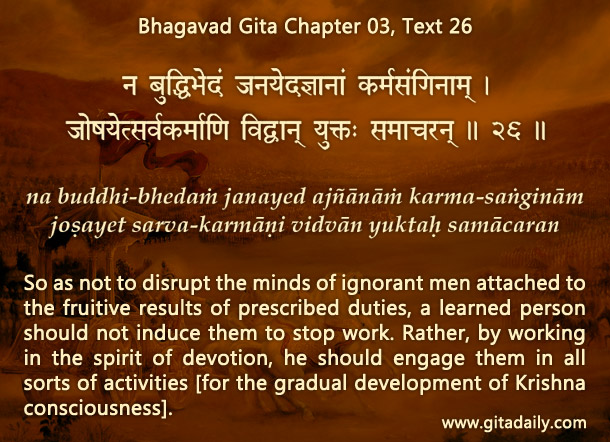A great danger for those following the right spiritual path is a sense of self-righteousness – the pride that we know the truth makes us feel that we have the right to correct others. We may even have the best of intentions, being concerned that, by the law of karma, they are headed towards very unfortunate destinations. But while their eventual destination is undoubtedly a matter of serious concern, their present emotion also deserves due consideration – a consideration that self-righteousness blinds us to.
When a person has a serious disease in an initial stage, a doctor can see the grave prognosis, but the patient can’t. Suppose the doctor starts castigating the patient for not taking proper prevention or treatment. The patient being unconvinced about the presence or the gravity of the problem may just leave the doctor, deeming him judgmental and ill-mannered.
Similarly, we can’t help others who are suffering in the diseased condition of material existence unless they want to be helped. And they won’t feel the need for help till they become convinced about the gravity of the problem. To become thus convinced, they need to give an open-minded hearing to the message of The Bhagavad-gita. For them to hear open-mindedly, they need to see the conveyors of that message – us – as intelligent and intelligible. So, we need to speak sensitively and behave respectfully, thus helping them see that we are their well-wishers and have something valuable to share.
Indeed, effective outreach requires not just speaking the truth, but conducting ourselves in a way that inspires others to come closer to the truth. Pertinently, the Gita (03.26) urges us to not speak words that agitate others, but to help them adopt, according to their present level, the progressive path of spiritual growth.


Leave A Comment